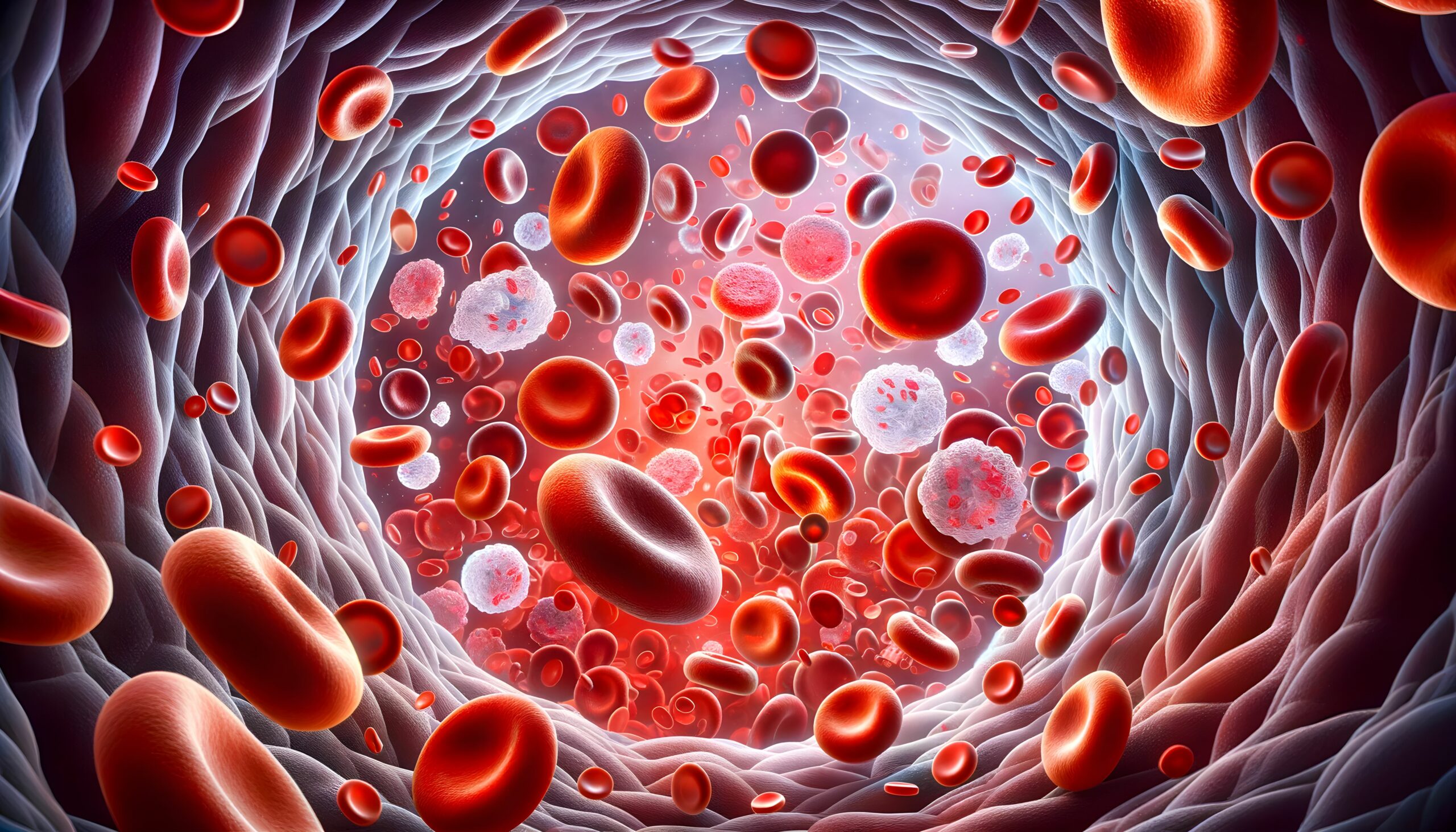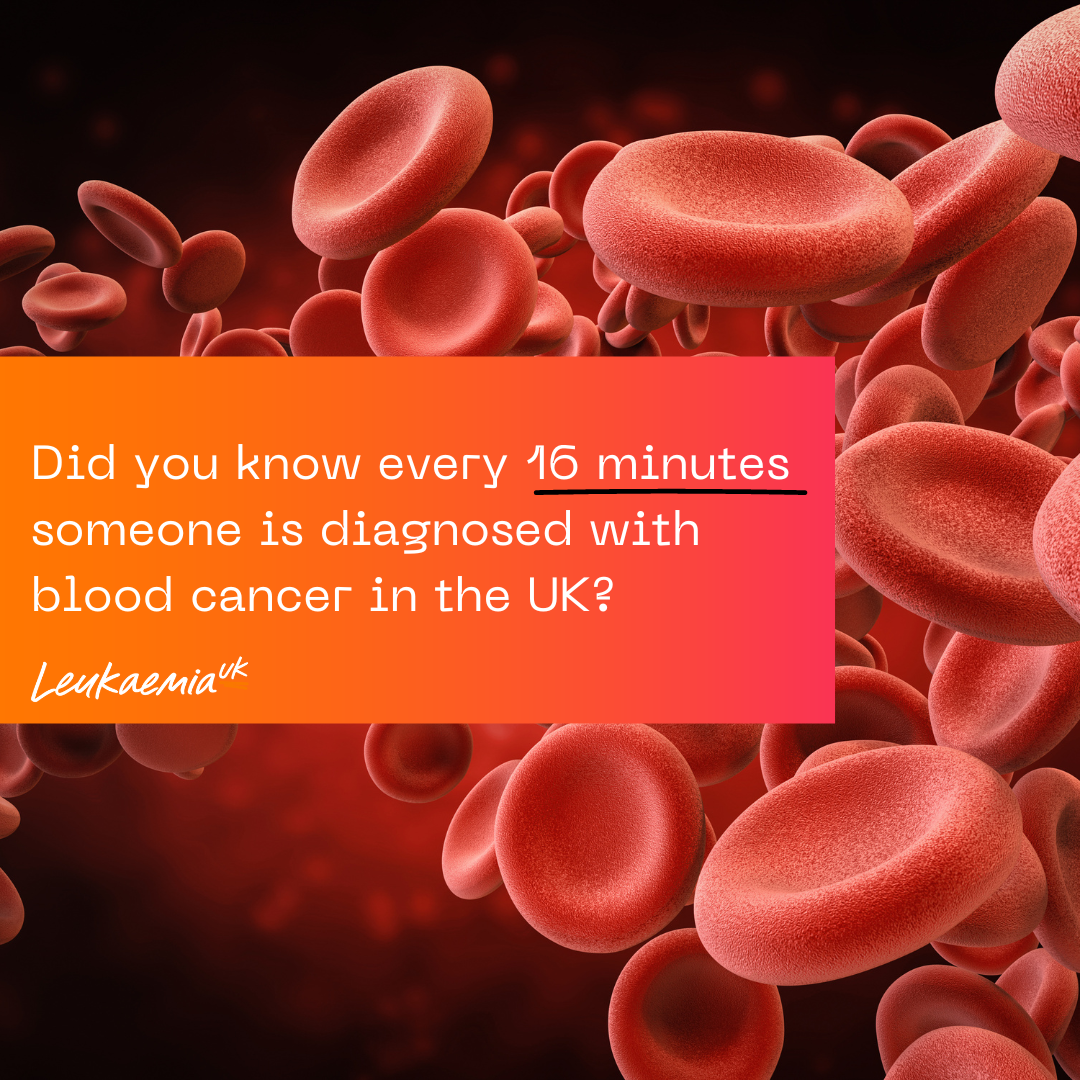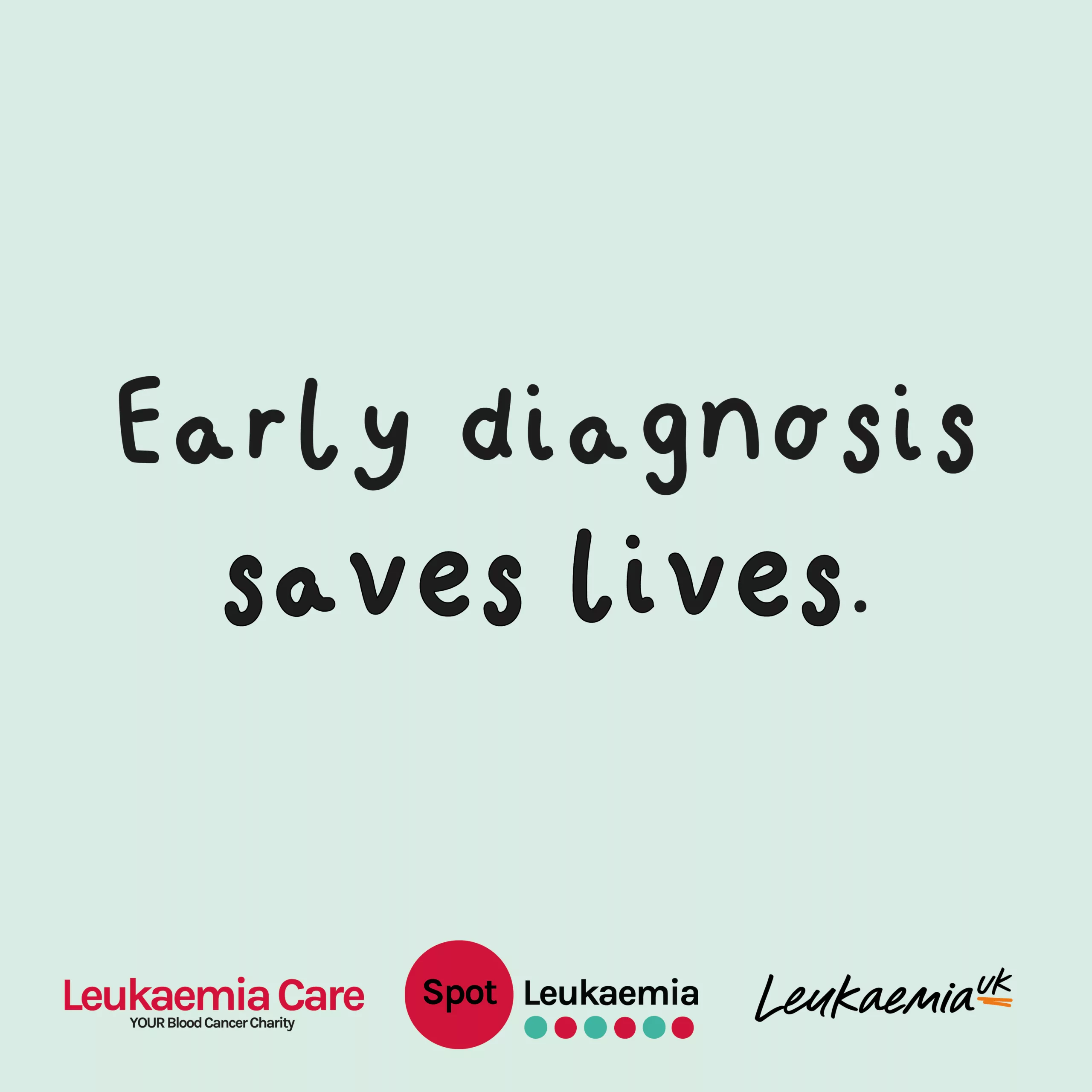
01 Sep 2024
What is blood cancer?
September is Blood Cancer Awareness Month, a chance to shine a spotlight on the disease and raise vital awareness. What do you know about blood cancer and how it affects people in the UK?
Blood cancer is a term that describes several different types of cancer that affect the blood cells. Most blood cancers begin in the bone marrow, the spongy material inside the bones, where new blood cells are produced. Blood cancer affects the production and function of blood cells.
There are different types of blood cancer, this includes leukaemia – a disease of the white blood cells. Other blood cancers include myeloma – a type of blood cancer that forms in white blood cells called plasma cells and lymphoma, that begins in one of the infection-fighting cells of the immune system called lymphocytes.
 How does blood cancer develop?
How does blood cancer develop?
Cells of our bodies are constantly dying and being replaced. Normally cells divide in a very controlled way. Cancer develops when there is a change in the DNA of cells. This can lead to abnormal blood cells developing, which can’t mature or function properly, divide too quickly or don’t die when they should do, leading to blood cancer.
In most blood cancers, the normal blood cell development process is disrupted. Abnormal blood cells don’t function properly and can prevent the important normal roles our blood plays, like fighting infections or preventing serious bleeding.
Who is affected by blood cancer?
Every 16 minutes someone in the UK is diagnosed with blood cancer, the fifth most common type of cancer in the UK.
Around a quarter of a million people are currently living with blood cancer and over 40,000 people are diagnosed each year in the UK. Despite treatment progress, blood cancer is still the UK’s third biggest cancer killer.
How can you spot blood cancer?
The signs and symptoms of blood cancer vary depending on the type of blood cancer. Symptoms can be vague or non-specific in nature, so are often hard to spot.
For leukaemia, the most common symptoms can include:
- Fatigue
- Repeat infections
- Unusual bruising or bleeding
Anyone experiencing any of these symptoms should contact their GP and request a blood test.
During Blood Cancer Awareness Month, Leukaemia UK are collaborating with Leukaemia Care to raise awareness of the signs and symptoms of leukaemia, because early diagnosis saves lives. Read more about our Spot Leukaemia campaign and find out how you can get involved.

Related posts
19 August 2022
Leukaemia Care and Leukaemia UK announce financial support collaboration
Leukaemia Care and Leukaemia UK are pleased to announce a collaboration to provide financial support to people affected by leukaemia, through the financial hardship fund. Leukaemia Care have provided 364…
15 June 2018
MP opens Leukaemia UK Ambulatory Care Unit
A unit funded by Leukaemia UK which allows people with blood cancer to have stem cell transplants as out-patients has been officially opened by its first patient, Nick Boles MP
3 February 2022
New analysis reveals the stark disparities in cancer rates between ethnic groups
The Cancer Research UK study demonstrates the importance of understanding the differences and inequalities in cancer and to highlight where improvements in survival, treatment and care can be made.
4 June 2022
Leukaemia UK is looking for volunteers for their Patient Experience Advisory Panel
Leukaemia UK is committed to championing advancements in better treatments and care for all. We want to ensure the needs of patients are at the heart of everything we do, and that the voices of people affected by leukaemia and related conditions are being heard. That is why we are setting up a Patient Experience Advisory Panel.